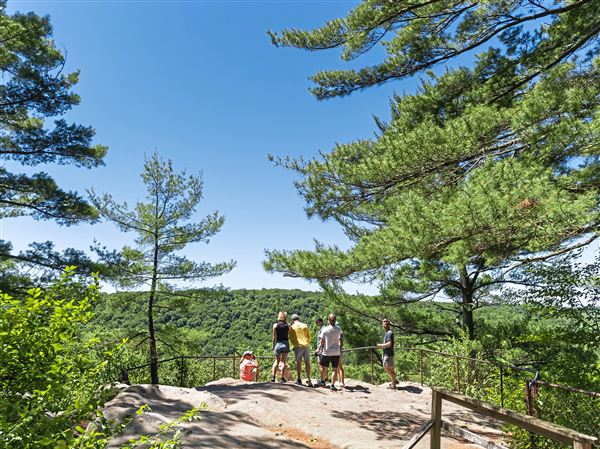Claudia Barich, 59, describes herself as a home “caregiver” rather than aide for Home Instead Senior Care of Bethel Park, a position she has held for 11 years. She does it better than most, as she was recently recognized as Pennsylvania’s 2016 Direct Care Worker of the Year by the state Department of Aging and Pennsylvania Homecare Association.

A native of Colombia who still carries her accent, Ms. Barich moved to the United States 22 years ago as a result of her marriage. The South Park resident had a business administration degree and management position in Colombia, but she worked as a restaurant hostess here before focusing for a year and a half on full-time care of her mother-in-law, who had Alzheimer’s disease, That experience was so rewarding, Ms. Barich said, it led her to make caregiving her profession, and she has worked the past 11 years assisting various clients in their homes for local franchises of Home Instead.
We sought her out to describe her experiences and advice from working as a home care aide, a position expected to be in growing demand for decades as the baby boomer population ages and seeks to avoid living in institutional settings.
Aging Edge: What was it about caring for your mother-in-law that made you want to do this type of work for strangers and not just for family?
Barich: It’s the way I was raised, to respect the elderly. I come from a huge family with 12 kids, and in Colombia we don’t put people somewhere like a nursing home when they age — you take care of people at home until they die.
Aging Edge: But doing it as a job isn’t for everyone. What drove you into it?
Barich: When I decided to take care of my mother-in-law, who had dementia, everybody was amazed — they said, “But it isn’t your mother, it’s your mother-in-law!” But it was the best job i ever had. My life was pretty much dedicated to her for a year and a half, but she was very pleasant — it wasn’t difficult to care for her. It was for me [who never had children] like having a baby, where you have to bathe and feed them and put on their disposable underwear, and it made me think I would be a good caregiver.
Aging Edge: So what was it like at the beginning going into strangers’ homes to care for them?
Barich: I spent a couple of weeks at first with a big German guy, but then the family decided they wanted to take care of him and didn’t need me. Then I filled in helping out a woman who was very resistant to care. Her family said she needed it, but she had been very independent all her life. I said to her, “Do you want a cup of coffee?” and she said, ”If I want it, I will make it myself.” If I asked her if she needed a spoon, she’d say she could get it herself. She made me cry a couple of times because nothing I did was OK, and I told her daughter she should call Home Instead back because she probably needed someone with more experience. Instead, when they called, they said, “We don’t want any other caregiver but Claudia.”
Aging Edge: So you kept working for that client?
Barich: For the next seven years. I helped her eight hours a day, five days a week, and when she died, I was holding her hand. She was in the beginning of Alzheimer’s when I started, and I was able to see the whole deterioration, which is very slow. Eventually, she was no longer able to say my name, but she would still be at the door with arms wide open when I arrived, saying, “Where have you been?”
Aging Edge: What changed her attitude about your being there?
Barich: I have love and compassion, and Home Instead helped me with training, helping understand that when someone’s upset, you should maybe go into another room for five minutes. They don’t want to be followed everywhere, they want to have space. You learn over time the way they want coffee, the way to help them with their shower. We became like one person, and when she passed away it was very difficult, like losing my mother. I was devastated.
Aging Edge: You don’t work with just one client now though?
Barich: I have four. There’s a woman in assisted living whose family lives out of town. I go see her for three hours twice a week. I hold her hand, bring her flowers, go down with her together for a cup of coffee, maybe take her to South Park to see the dogs there, which she always liked. There’s another woman I see for one hour each night to help her bathe. Three or four times a week, I see a Cuban lady, who had a mini-stroke but is a lot of fun to be with. She mostly just speaks Spanish, and we cook Latin American food. And there’s a new client I see who needs personal care. She’s mostly in bed, and I help her to get to the toilet.
Aging Edge: There’s a lot of discussion that this is hard, demanding work. Is it physically challenging for you?
Barich: Not really. There’s a rule [at Home Instead] that we’re not supposed to lift more than 25 pounds. Home Instead is for people who are able to do most routines by themselves. We’re there to be like a companion or for personal care, which can mean providing help getting to the doctor or to church or reminding them about medication or other activities.
Aging Edge: And what do you like about that?
Barich: You’re making a difference in somebody’s life. You see their smile when they see you, and sometimes you’re the only people they may see, because they don’t have family around, like the lady in assisted living in Bridgeville. But her family is happy because they know I’m around and paying attention to every single detail.
Aging Edge: If it’s not demanding physically for you, what then are the biggest challenges of the job?
Barich: I’ve been fortunate, always dealing with good families where they trust me, but I’ve heard a lot of stories about how difficult it is to deal with families. Sometimes families think we’re maids there for cleaning. We know we’re to do some of that as part of what we do, but the main thing is the safety and well-being of the client. If they need maids, they can find another agency.
Aging Edge: So can anyone become a good direct care worker, or does it take special qualities?
Barich: I would say, just love and compassion. I didn’t have any experience. I never went to school to learn this stuff, though we do have training at Home Instead. But mainly you have to have common sense, you have to have compassion, and that’s all you need.
Aging Edge: There’s a lot of turnover in your field, often because people can make as much money in basic retail jobs that might be easier. Do you feel well-compensated for the work you do, or is that a problem? (Ms. Barich receives between $9.25 and $12.10 hourly, she says, depending on the day of the week and the particular client’s needs.)
Barich: I do the job more for the satisfaction than the money. I don’t really need the money because of my husband’s work. For me, it’s more a matter of the satisfaction I get when I go to the door and see a client waiting there with a big smile — that’s my pay. What I was making 11 years ago [as a restaurant hostess] is pretty much what I’m making now, but this is better for me. It might be different for someone who’s responsible for raising a family. A lot of people need more money to pay the bills.
Aging Edge: Do you have a sense of what others working in your field could do better to serve clients and families?
Barich: I’m a very dependable person, and people know they can count on me, that if I say I’m going to be there at 8 o’clock that I will be there. To be dependable is No. 1, especially for those people who are in bed and need somebody there for assistance.
Aging Edge: What might be the reason for turnover or dissatisfaction among workers, leaving the pay issue aside?
Barich: I guess there are younger people who aren’t as responsible. Sometimes it might be a 22-year-old person — maybe they had a lot of fun over the week and on Monday they don’t want to get up for the job.
Aging Edge: Do you worry at all about who will take care of you if you need help when you’re older? Will there be anyone as dedicated as Claudia Barich to do it?
Barich (laughs): I will go back to Colombia, where I have 11 brothers and sisters to take care of me and I have lots of nieces and nephews.
Gary Rotstein: grotstein@post-gazette.com or 412-263-1255.
First Published: May 9, 2016, 4:00 a.m.













